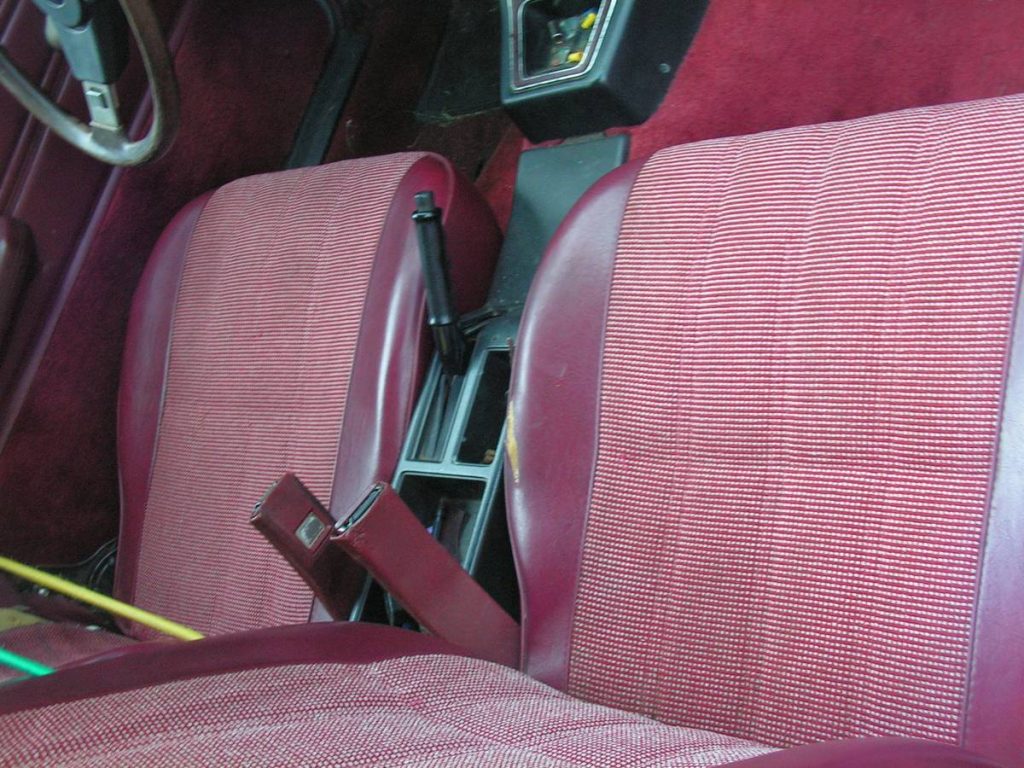Good morning, fellow Autopians! It’s time to look at a couple more cheap old cars. I’m considering implementing a “Two-Door Tuesday” rule here on Shitbox Showdown. It’s the rule for today, anyway; we’ll see how long I can keep it going. Yes, I know yesterday’s cars were both two doors as well. Purely coincidence. And speaking of yesterday:

Well, I’ll be damned. This one actually surprises me. I guess I underestimated your dislike for automatics, either transmissions or seatbelts or both, but the little Colt had its two doors blown off by the old flat-black Ford Courier.
Today’s cars are both parked in the “Where are they now?” lot, way in the back, behind a row of Dodge Miradas and broken-down Divco delivery vans. I’m willing to bet a lot of our older readers haven’t seen either of these in many years, and our younger readers may not even be aware they ever existed.
1970 Saab 96 – $1495


Engine/drivetrain: 1.5 liter V4, 4 speed manual, FWD
Location: Amity, OR
Odometer reading: unknown
Runs/drives? Nope
It’s one of those things that non-car-people say that make car-people cringe: “My car has a V4.” In almost every instance, they mean an inline-4, and have gotten confused by V6 and V8 engines into thinking that “V” stands for cylinder count. But there is always the chance, however slight, that this person knows exactly what they’re talking about, and drives a 1970s Saab.


This unusual powerplant found its way to Saab by way of Ford Germany, who developed the engine for the Taunus (not to be confused with the Taurus). Saab originally used their own three-cylinder two-stroke engine in the 96 (and sister model 95 station wagon), but abandoned it in the late ’60s in favor of the V4 Ford. The engine sits far forward in the engine bay, in front of the transaxle, which is a column-shifted 4 speed equipped with a “freewheel” device (a holdover from the two-stroke days).

If a Saab 96 is the car you want, you will find your choices limited. It’s going to be hard to cross-shop this with similar cars like you would a Honda Accord or something. This one doesn’t look like a bad starting point; it’s all there, I think, more or less. It’s a bit rusty, but completeness counts for a lot with a project like this. You could search for years to find a missing trim piece or a working fuel gauge to replace your broken one. Best to start with as much of it as you can.


I just gotta say, I love these headrests. It’s almost worth restoring the rest of the car just to be able to see these every day.

1981 Isuzu I-Mark – $1000

Engine/drivetrain: 1.8 liter diesel inline 4, 5 speed manual, RWD
Location: Renton, WA

Odometer reading: 172,000 miles
Runs/drives? Not at the moment
You can be forgiven for not remembering this car, but it has a far more famous cousin that you may have heard of: the Chevy Chevette. Isuzu’s version of GM’s global T-platform was called the Gemini in Japan, and originally came to the US as the “Buick Opel by Isuzu,” replacing the real Opel Kadett, also sold through Buick dealerships, in 1976. In 1981, when this example was made, it became the Isuzu I-Mark, a nameplate that would bounce along the bottom of sales charts for another decade. The car might have done better if they just called it the Gemini; it’s a much cooler-sounding name.



It’s a sharp looking little car: nice crisp fastback coupe styling, a Hofmeister kink accentuated by that little vent grille behind the rear window, and a friendly face. There’s a bit of rust here and there, and there may be more underneath; a good hard look at the floors and rocker panels is probably warranted. Inside, things are quite a bit better; the oxblood-red interior is in nice shape, but I do wonder what’s under the paper (?) taped to the dash. I dig the jaunty angle of the shifter, though – very Alfa-like.

Not much mechanical information is given, other than “it doesn’t run.” But Isuzu diesels are stout units, known to go half a million miles or more, so if you can get it going again, it should stay operational for a good long while. You won’t be getting anywhere very fast; it’s only good for 51 horsepower, but that gives passers-by more time to gawk.

Whichever one you choose, I guarantee you’ll have the only one on your block. Neither one is likely a candidate for a full-on restoration; they’re not really worth the hassle and expense. But as scruffy time-capsules to putter around in, either one could be a lot of fun. Which one is for you?




I really don’t understand the comments lamenting about the “low powered Isuzu diesel”, then they go and vote for the Saab, which on its best day would be left in the dust by the Isuzu oil burner.
My vote is for the Isuzu, even if the Saab was in a similar condition, let alone its current sorry state that nobody will actually get it to running again from. At the same time you could probably get that diesel going with a screwdriver and a piece of wire, and then enjoy the 60mpg on your daily commute.
Anyone have a link to Monday’s article? I have searched with no success. It would be nice if these were all in their own category.
I like the SAAB, remembers me of several vacations in Sweden, Denmark and Norway in the 70ties (I’m from Germany).
But this V4 engine is not a German delopment. It was designed in the US for the Ford Cardinal-project. This whole project was later transferred to Ford Cologne where the car was build as the Taunus P4. I think it became the first front driven production Ford.
Holden Gemini lift back for me but that diesel lump would have to go. There’s plenty of other more appropriate engine options…
I went with the Saab because it’s required. But I gotta say, the interior on the Isuzu is really kinda cool.
I was on the fence but after reading all the comments… where’s the poll? I’m going with the Saab.
It’s a chick magnet.
Saab, all the way. Years ago I worked with a lady who bought a Saab Sonnett. When she told me it had a V4 and I politely told her that she must be mistaken. Head slap. I wish I could apologize to her. Also, why are V4s virtually nonexistent in cars? I4? Fine. V6? Fine. V4? No way, you idiot! I’ve never understood.
Cost. It has a ton of extra parts over an inline 4. On a DOHC engine it would have two more cams, an extra exhaust manifold, extra catalytic converter, longer timing belt/chain, two more cam gears etc…
You’d have to have a really good reason to use one. That said I wish someone made a modern car version. All though an Aprilia RSV4 sportbike motor belts out about 200hp. that’ll do pig, that’ll do.
Definitely the 96. I had a 1973 Sonnet I’ve regretted selling ever since I handed the keys over 42 years ago. If this were near me, I’d be looking at it right now.
This time around I think I’m going to hold it in until I get to the next exit….
Saab for the history
Isuzu for the apocalypse